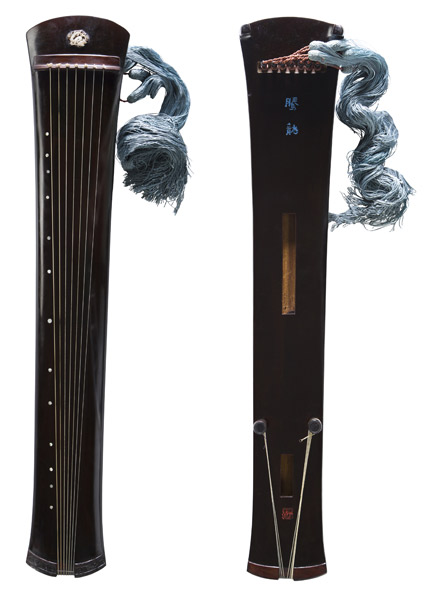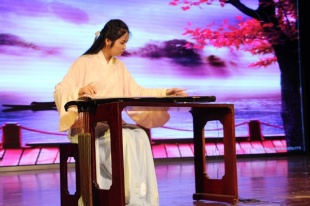The seven strings of Yangzhou


Many works of literature, including the Book of Jin and Extensive Records of the Taiping Era, recount the tale of a journey Ji Kang made that included a night's stopover, during which he started playing the guqin. Legend has it that in doing so a spirit appeared, enchanted by his playing, and then proceeded to teach him Guangling San on the promise that he would never pass it on to anyone else.
(Against that quaint account of Guangling San, which in its longest renderings can be as long as 20 minutes, is one from the second century book Qin Cao, presenting a dark tale of revenge that includes regicide and suicide.)
Later Ji was constantly at loggerheads with bureaucracy and orthodox Confucianism, to the point that in 262 or 263, he was sentenced to death by the regent Sima Zhao. Three thousand scholars pleaded for him to be spared, to no avail, and just before Ji was executed, probably beheaded, he is said to have played Guangling San a final time before lamenting: "This day Guangling San is forever lost."
The modern Guangling San comes from the music score compilation Mysterious and Marvelous Tablature, compiled by the music and opera researcher Zhu Quan in the Ming Dynasty (1368-1644). Zhu claimed the tablature was passed down by Ji's nephew Yuan Xiaoji, who claimed he had learned the piece by hanging around a window eavesdropping on Ji as he played.
Although the origins of Guangling San, the authenticity of its tablature, and the relationship between the piece and Yangzhou continue to be debated among academics, it is widely accepted that the piece was once circulated in the Yangzhou region, underling a historical connection between Yangzhou and guqin culture.





































